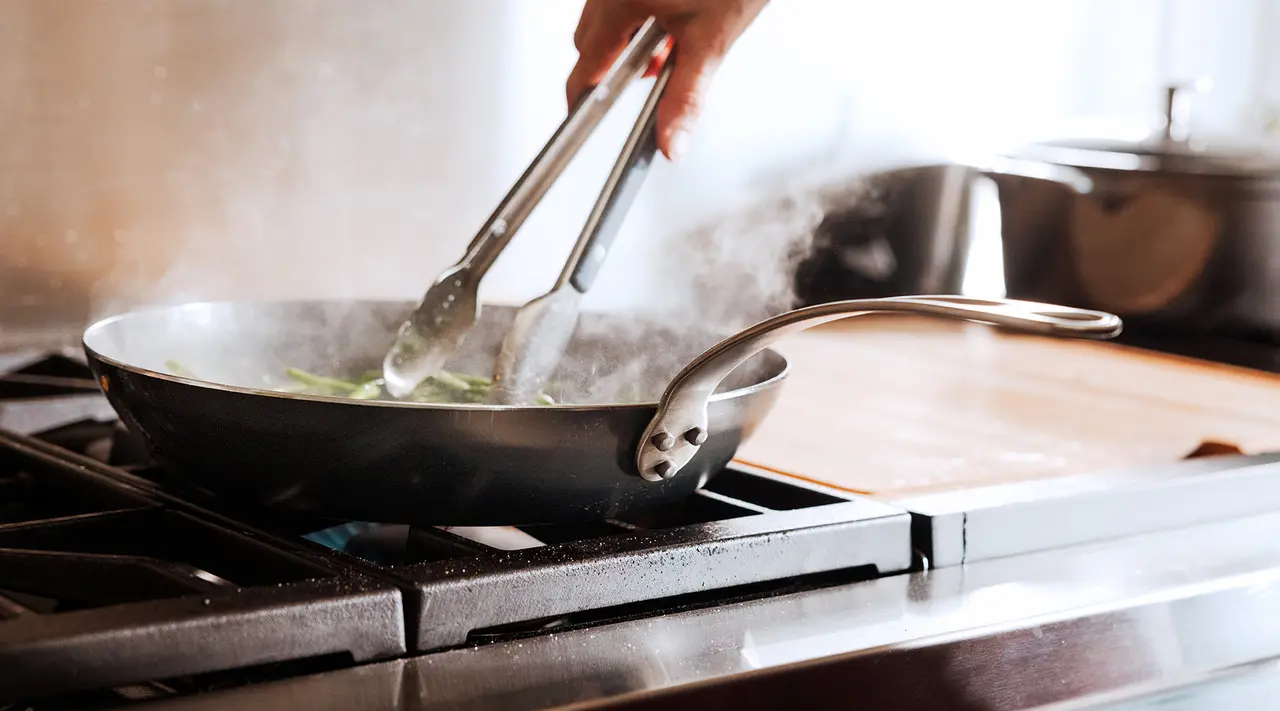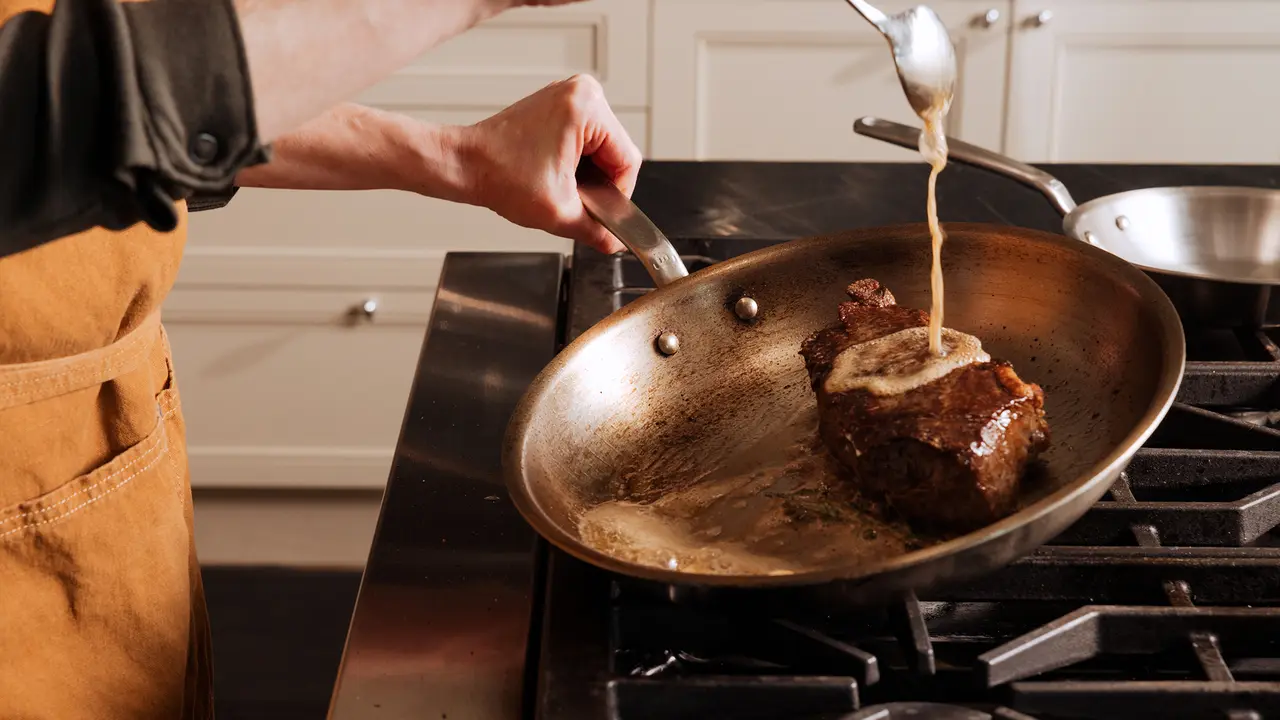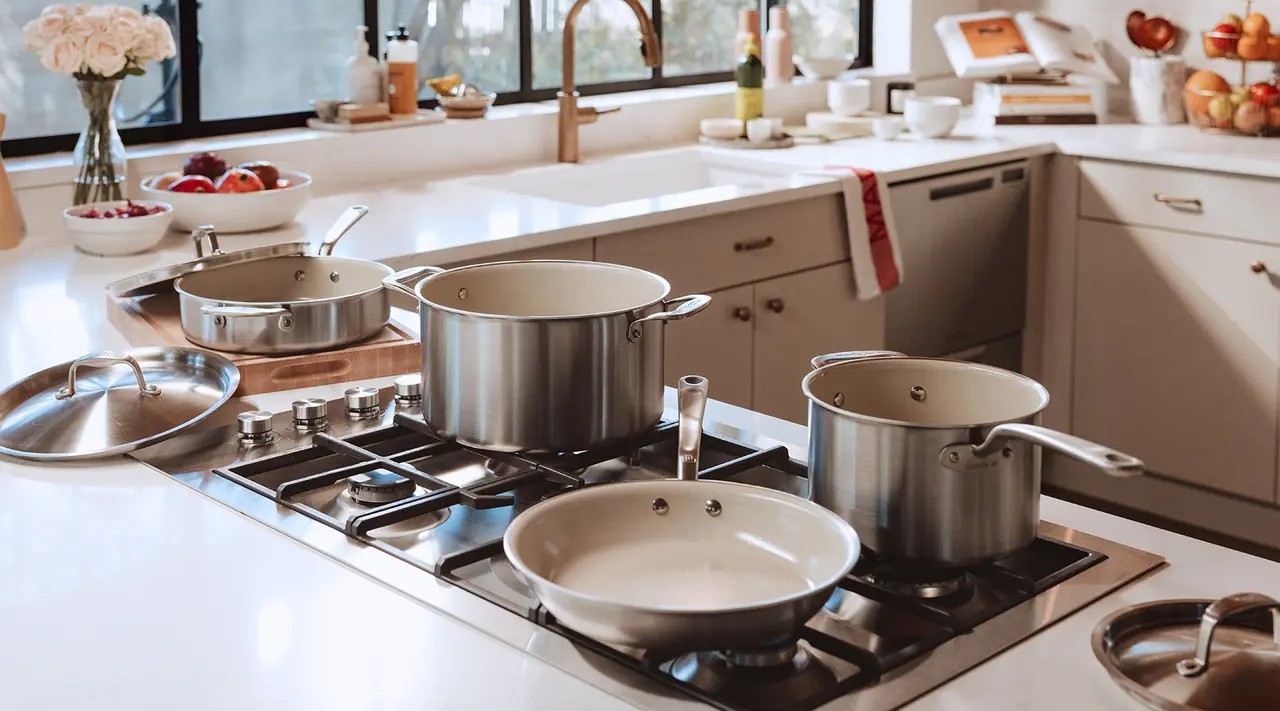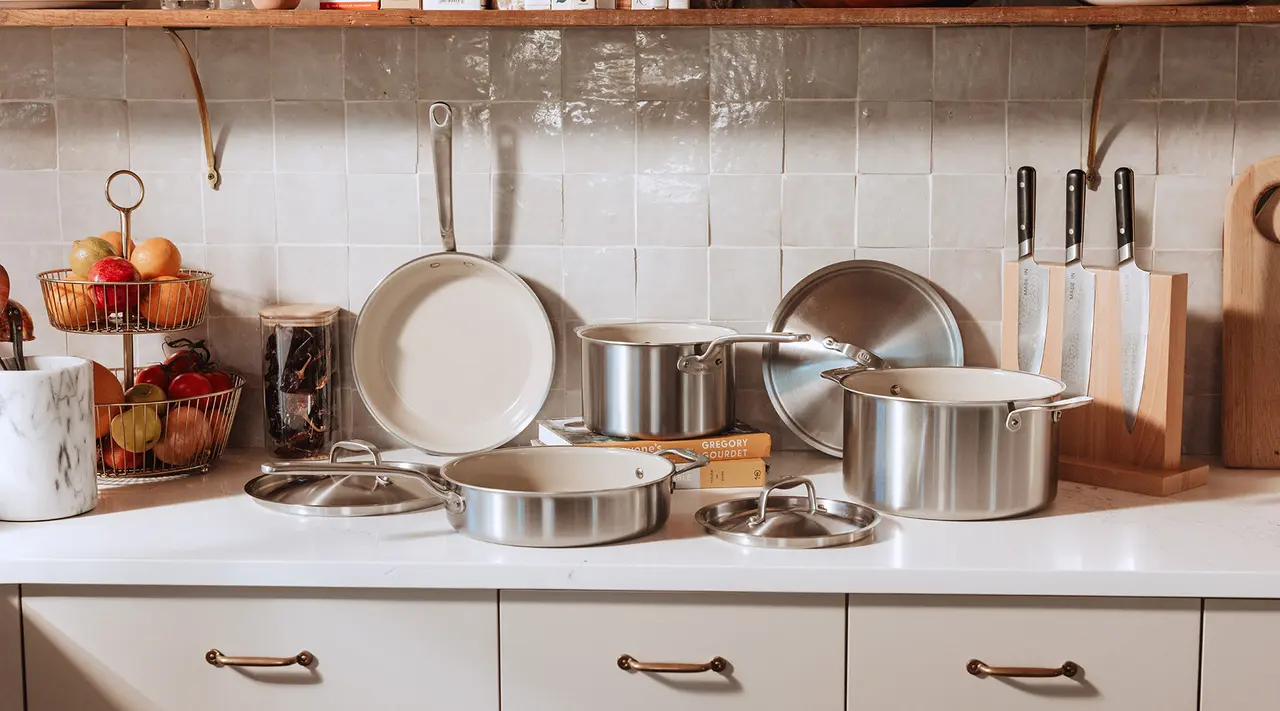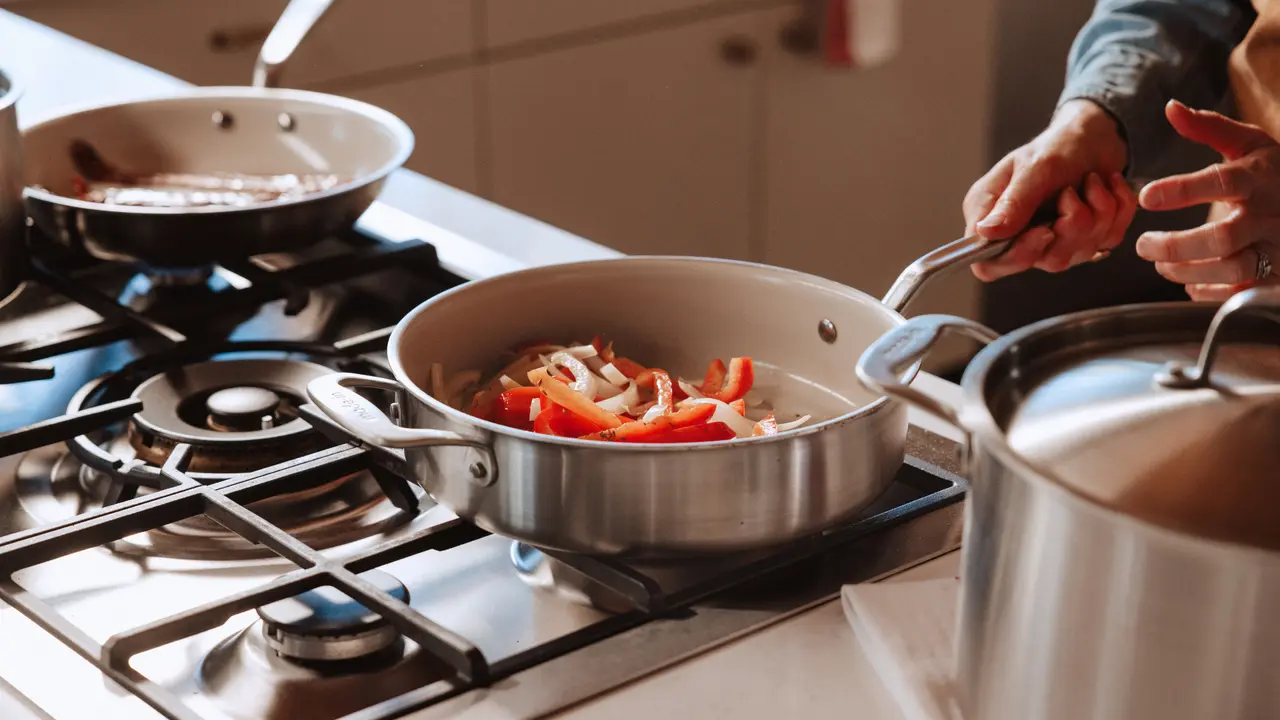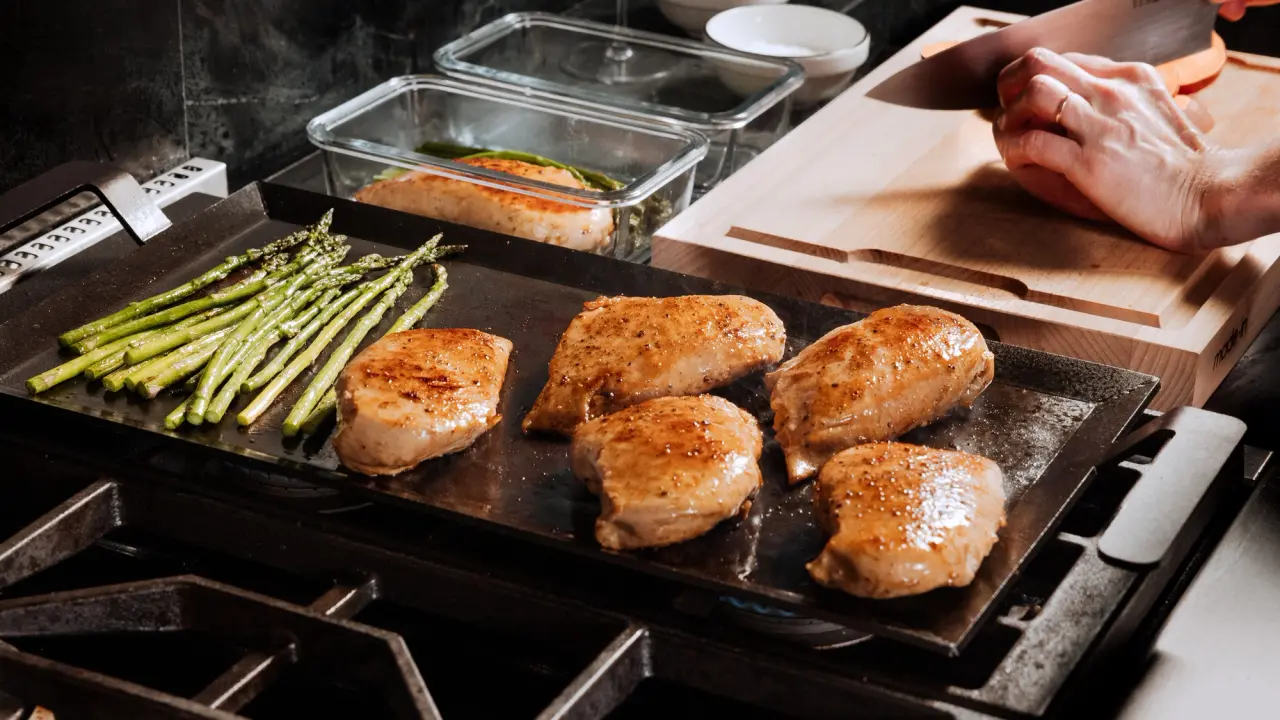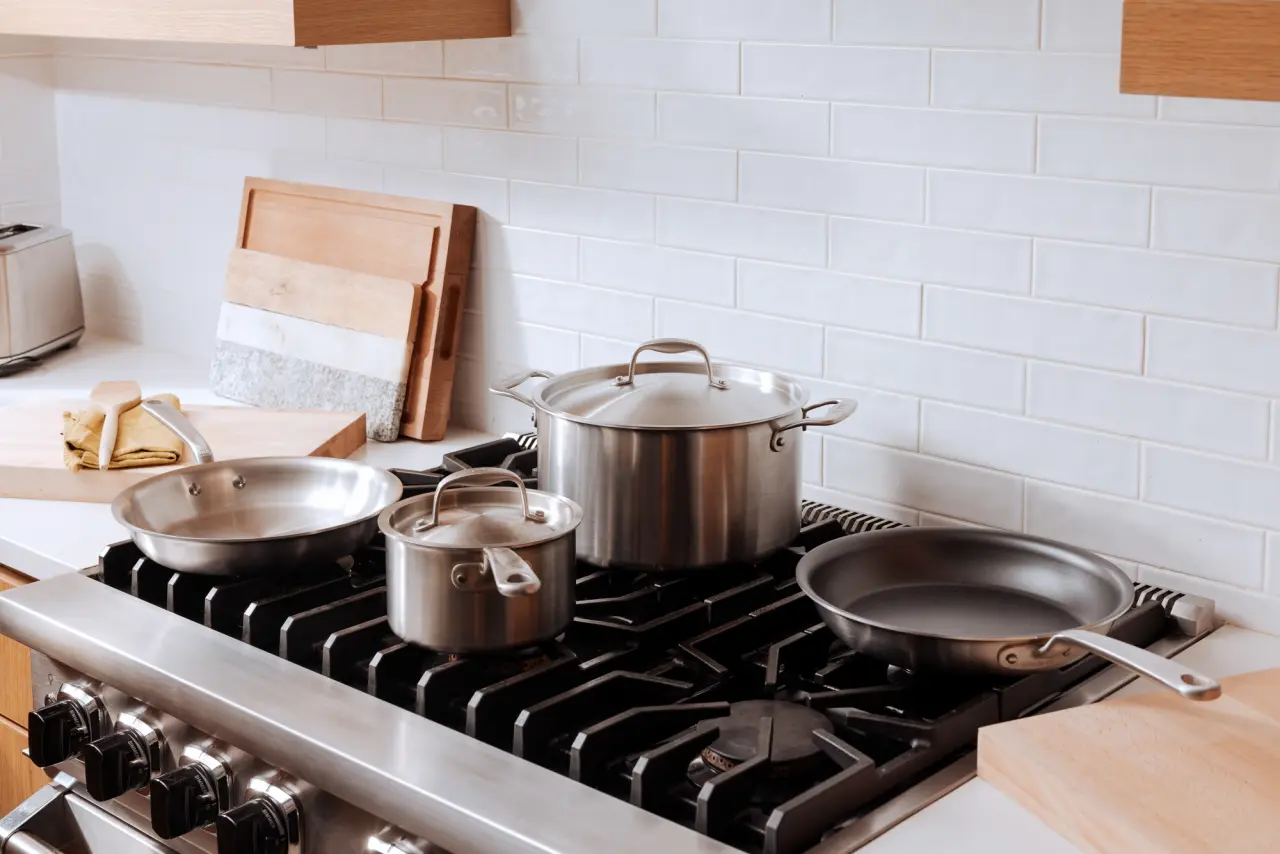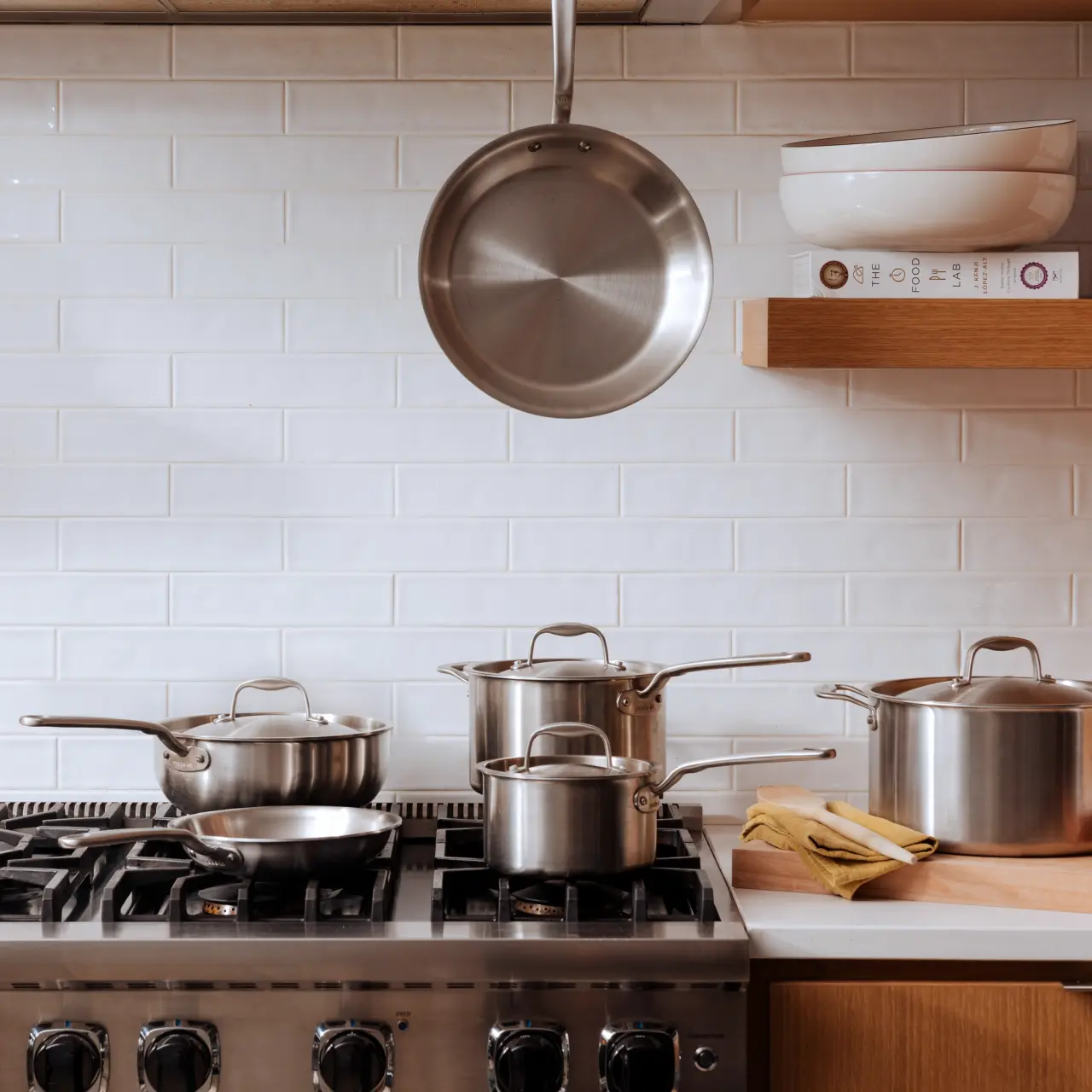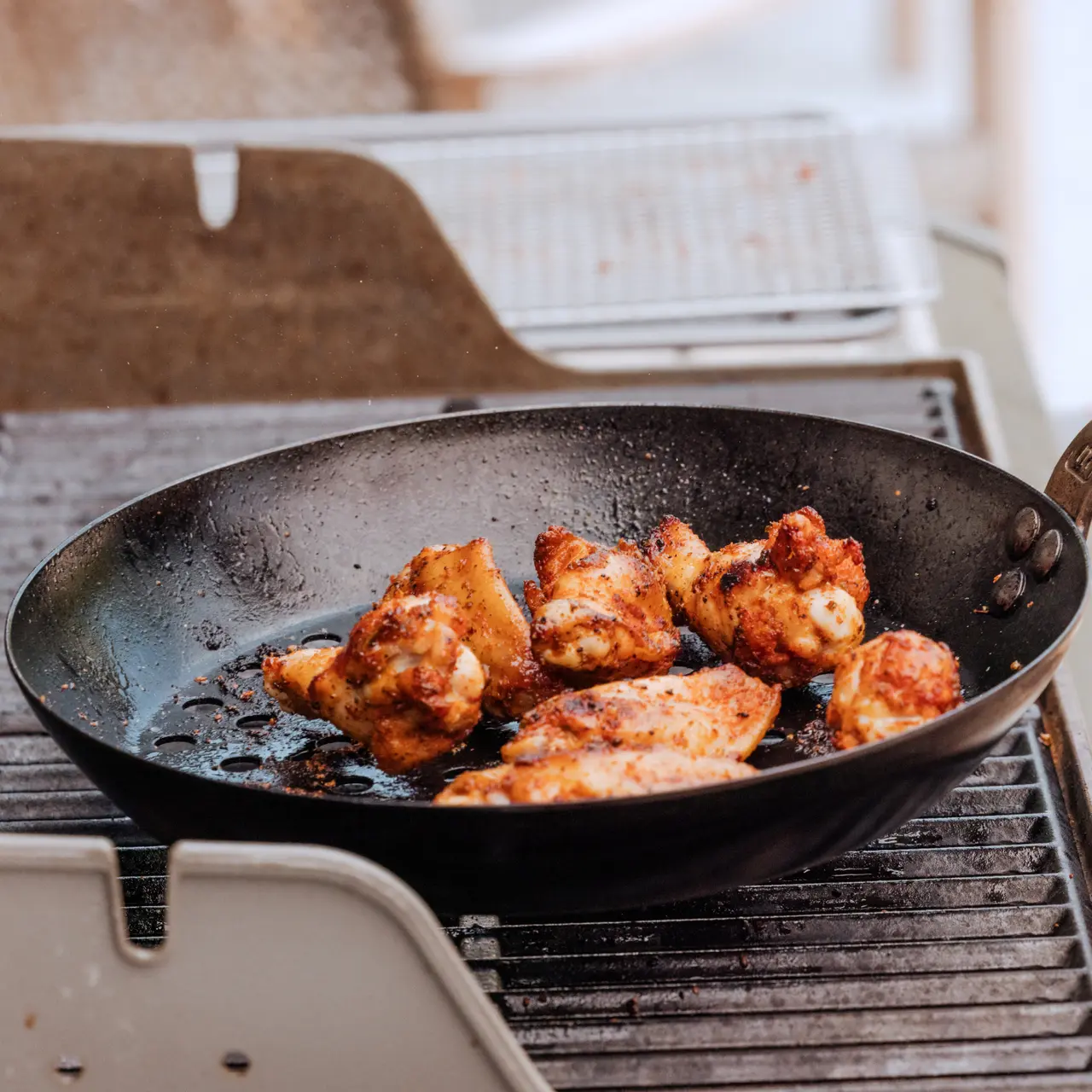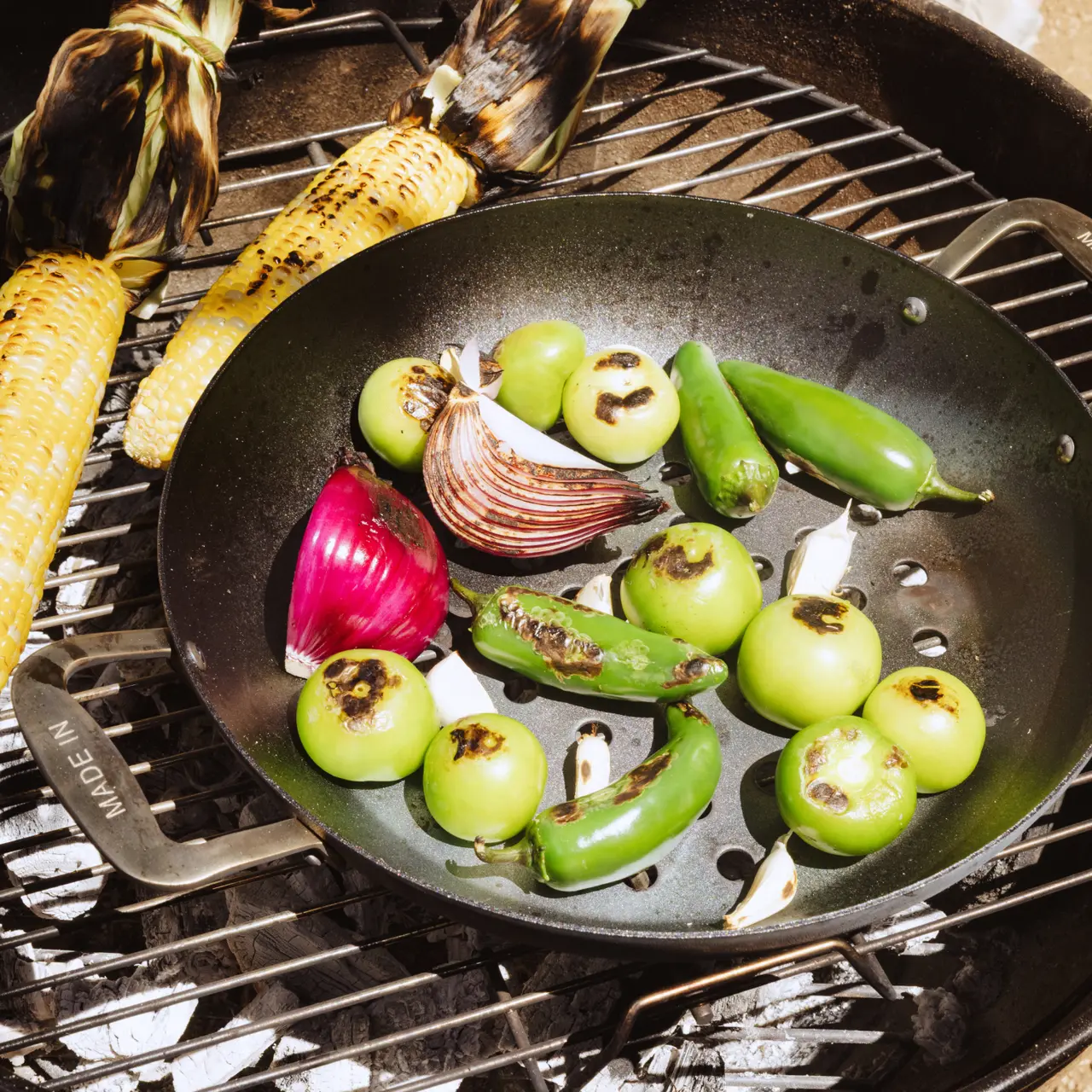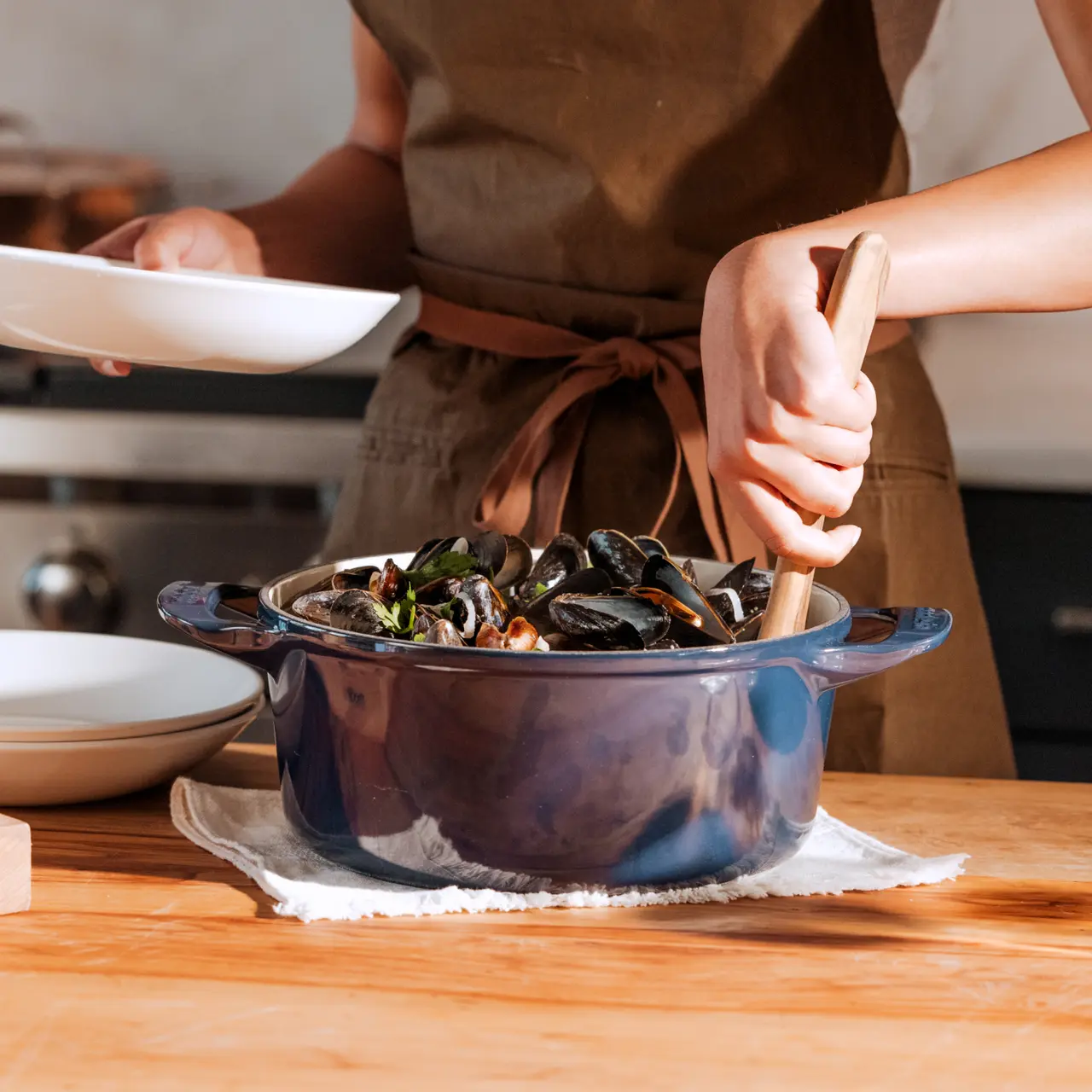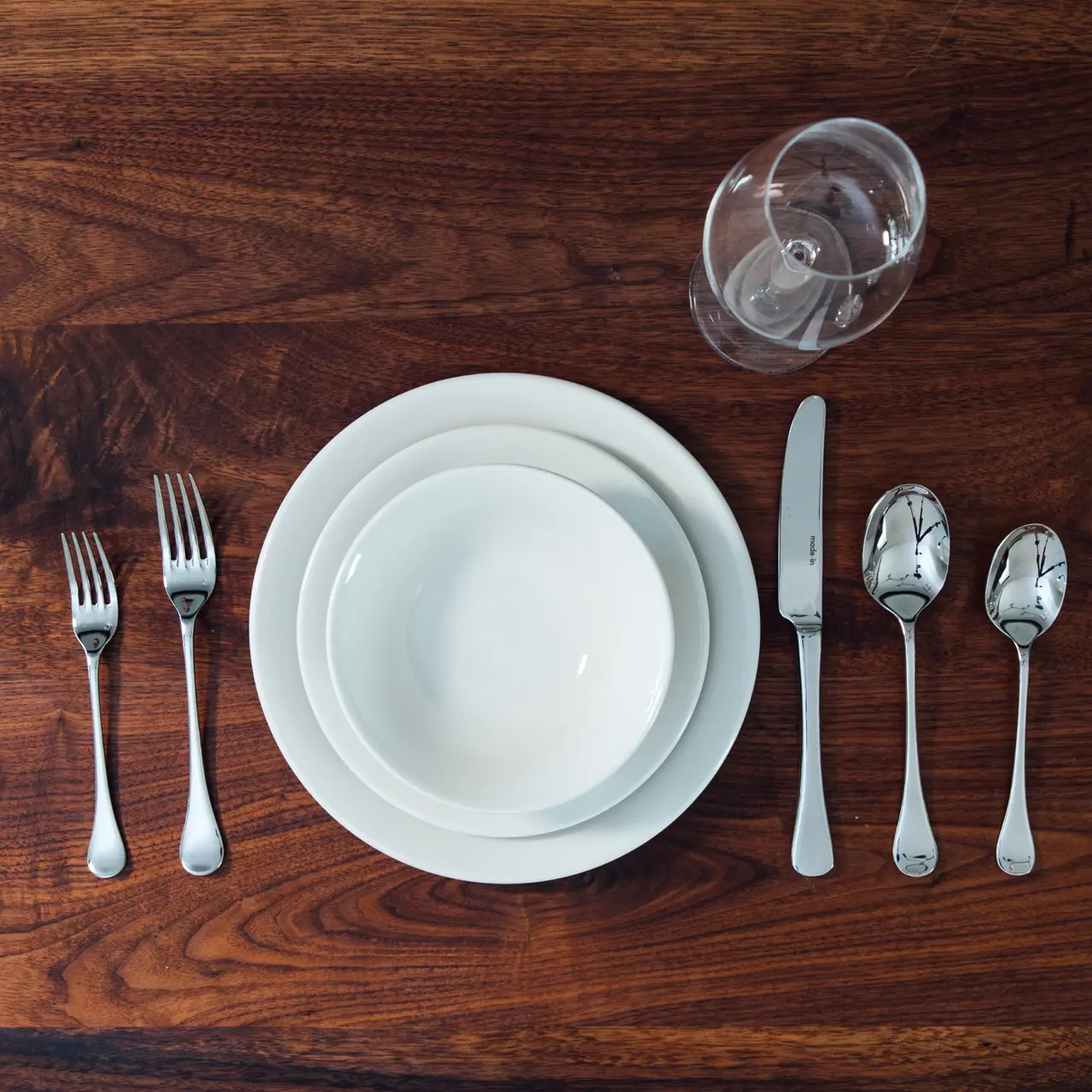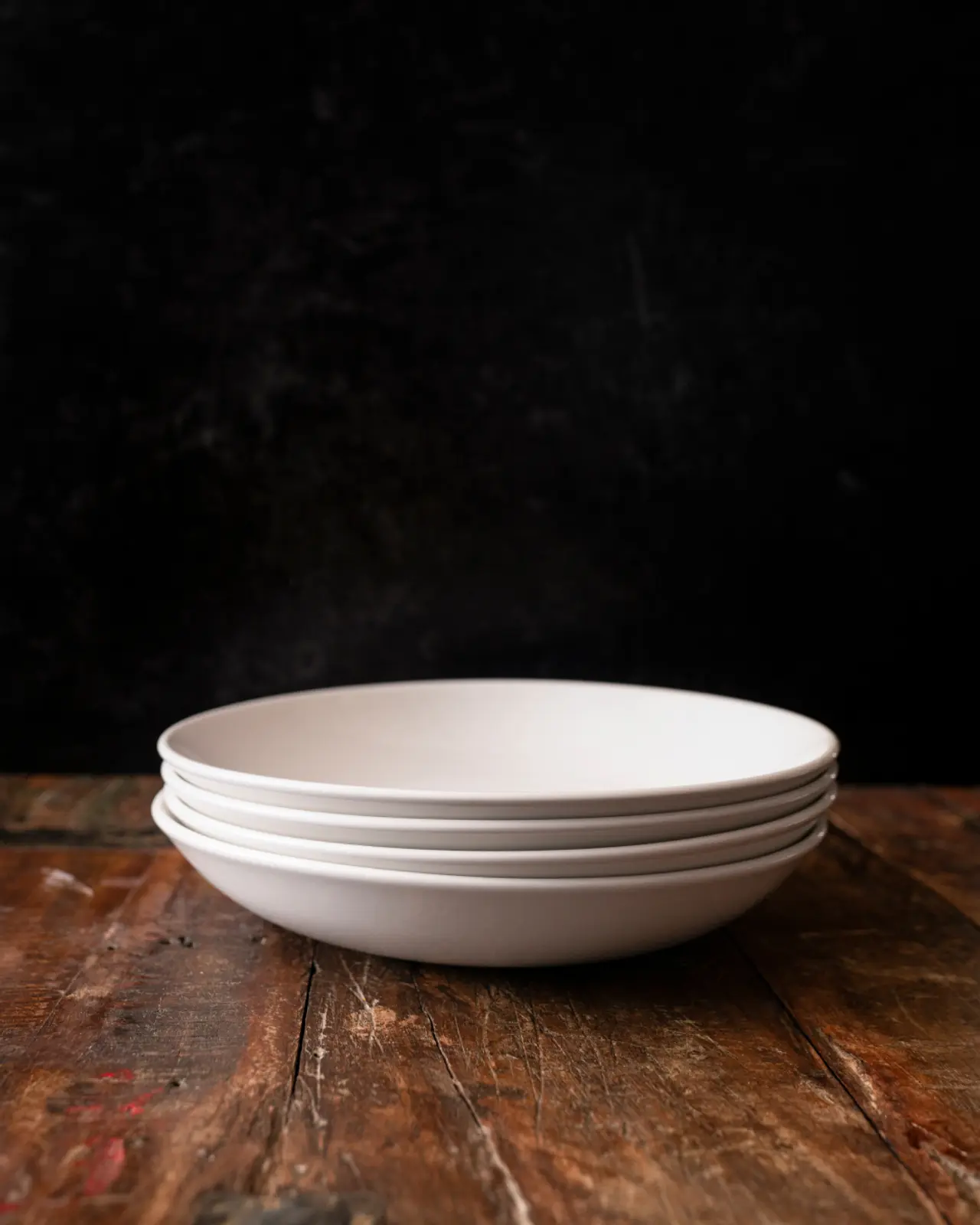If you spend a lot of time in then kitchen, then you already know how important it is to have the right tools for the job—the type of cookware you choose can ultimately make or break a dish. With all the different types of metal used to construct pans out there, each with its own unique qualities, it can be tough to choose which is best for you.
Here, we'll be breaking down the differences (and similarities) between two common types of cookware materials: carbon steel and aluminum. Both offer unique benefits and drawbacks, but comparing them head-to-head reveals a clear winner. Let's dive in.
Understanding Carbon Steel Cookware
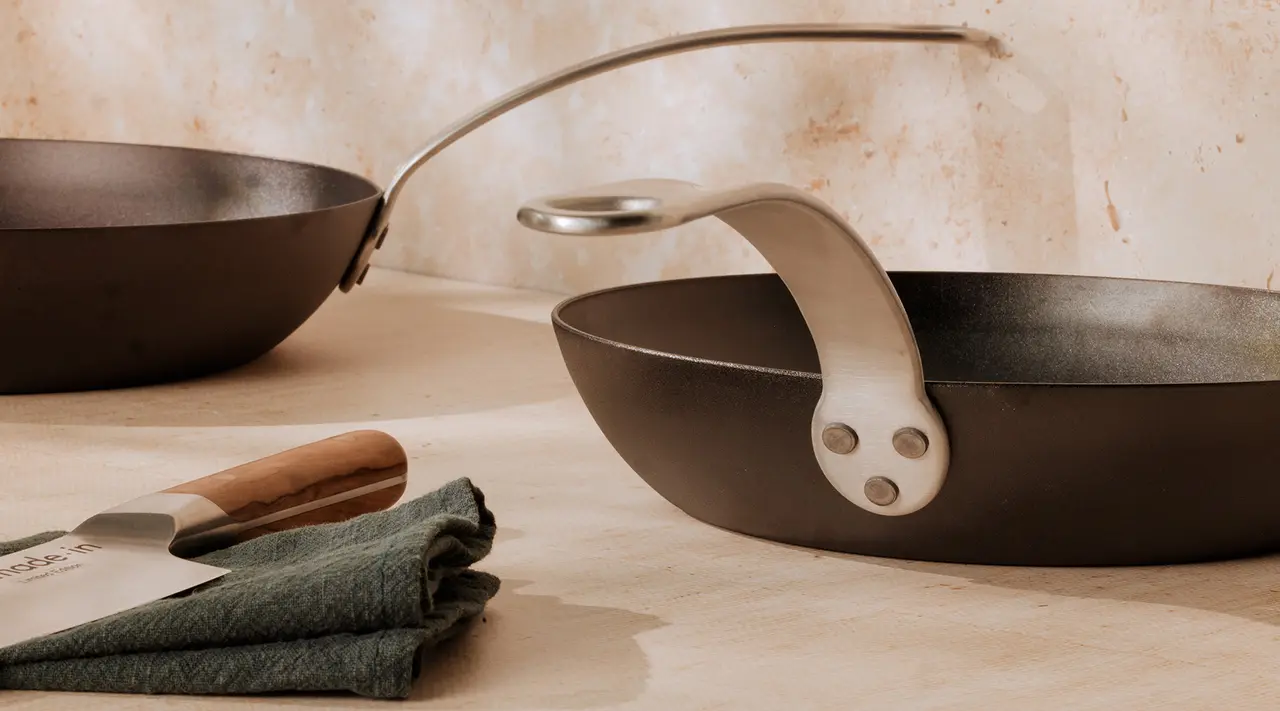
Carbon steel cookware is an alloy made up of carbon and iron—our composition is 99% iron, 1% carbon—for a lighter weight, more durable alternative to materials like cast iron. A French chef favorite, carbon steel is one of our favorite pans for high-heat cooking, and considering it's able to handle up to 1200F, it's not hard to see why.
Once it's been properly seasoned, carbon steel is an incredibly versatile cookware material and can be used on electric, gas, or induction stoves without worry, and can even be used on the grill or over an open flame. It's also able to handle a wide range of dishes and ingredients, with one caveat—as a reactive material, it has a chemical reaction with acidic ingredients like citrus, vinegar, or tomatoes. If you do use these ingredients, you'll likely be due for a reseasoning as these have a tendency to strip your seasoning.
Carbon steel is most famous in its pan format, but its high heat tolerance and excellent conductivity makes it just as useful in other shapes—we're partial to carbon steel griddles, roasting pans, and grill frying pans.
Advantages of Using Carbon Steel Cookware
- Heats up quickly
- High heat tolerance
- Compatible with various cooktops
- Safe for the stove, oven, and grill
Considerations of Carbon Steel Cookware
- Heavier than aluminum
- Acidic foods may strip the seasoning
- Involves more care
What Is Aluminum Cookware?
One of the most common types of metal cookware, aluminum is made from a soft, malleable metal that is an excellent conductor of heat. Aluminum has been used for centuries to create pots and pans because it's lightweight, inexpensive, and very durable.
Aluminum pans are typically coated with other materials to prevent them from corroding in the presence of acidic foods like tomatoes or lemons. On its own, aluminum is an excellent conductor of heat but warps easily—so sandwiching it with layers of more heat-resistant cookware can help it last longer. This is a big reason 3- or 5-ply stainless steel pans will often use aluminum as one of the layers in their cladding process.
Pros of Aluminum Cookware
Aluminum is a lightweight and affordable choice for the kitchen that's perfect for sautéing vegetables or browning meat.
Some of the other benefits of aluminum cookware include:
- Conducts heat thoroughly and evenly without hot or cold spots
- Pans are dishwasher safe
- Use of acidic ingredients without reaction
- Less oil is needed when cooking
Considerations of Aluminum Cookware
Aluminum cookware is lightweight and a good conductor of heat, but has a few drawbacks to be aware of:
- Soft and warps or dents easily
- Not as durable as carbon steel
- Not as good at retaining heat
- Burns food at high temperature
Carbon Steel vs. Aluminum: Which One Is Better?
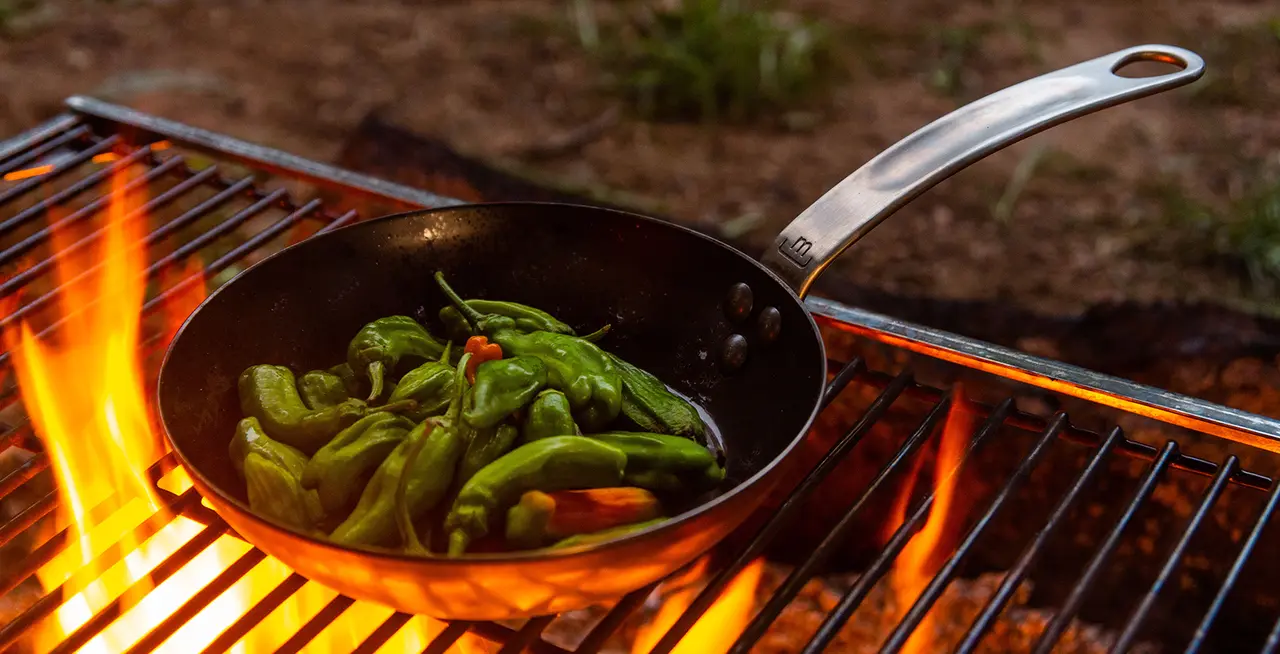
When comparing aluminum and carbon steel cookware, the differences are clear, and we believe carbon steel comes out as the clear winner. Durable, long-lasting, tolerant of extreme temperatures, and able to handle cooking on the stove or over open flame, carbon steel can handle everything aluminum can.
Carbon steel also makes for a pan you’ll be able to use for decades with proper maintenance and care—whereas you’ll need to replace your aluminum pans once every few years when they wear out.
Ready to Shop?
If you're ready to experience the difference carbon steel can make in your most-loved dishes, now's the perfect time to add a shape to your collection. From the classic and chef-loved Carbon Steel Frying Pan to the cult favorite Griddle, you can't go wrong with any piece in our Carbon Steel Collection.
